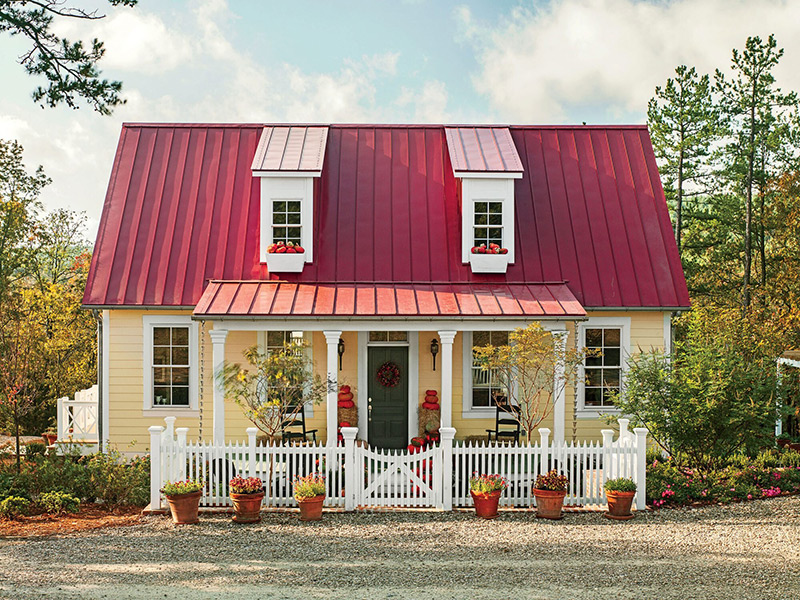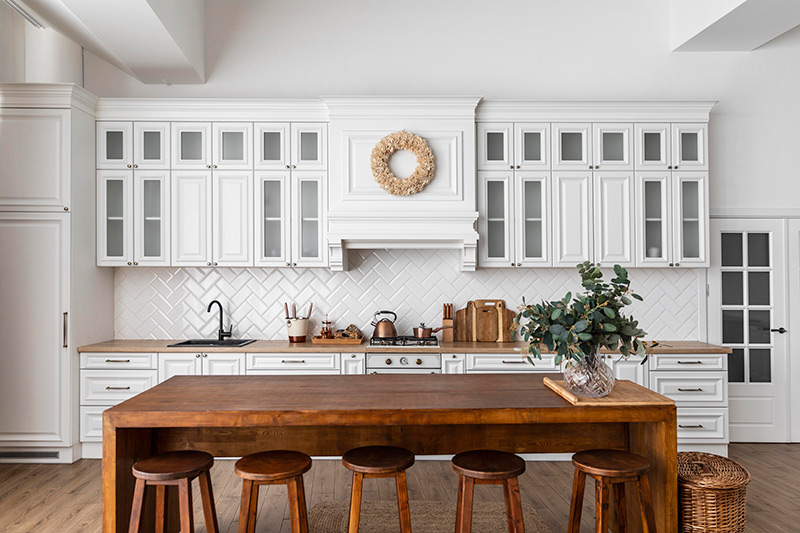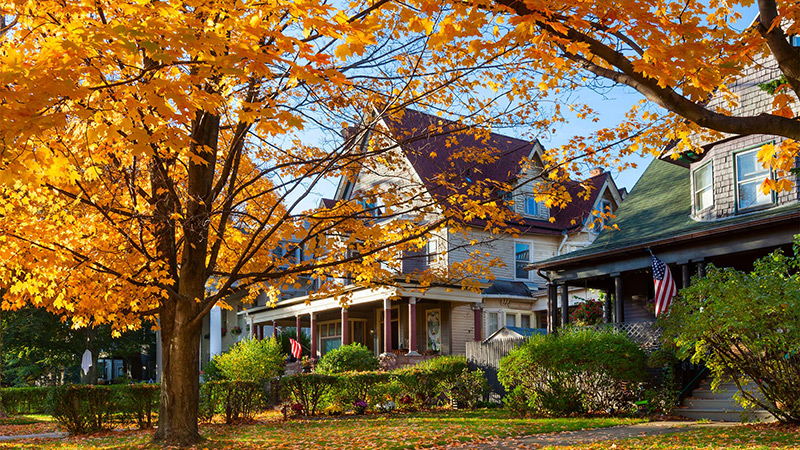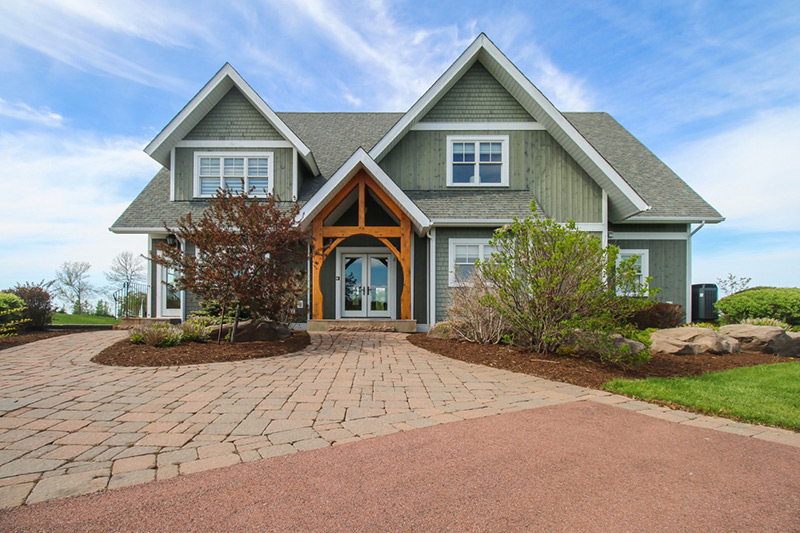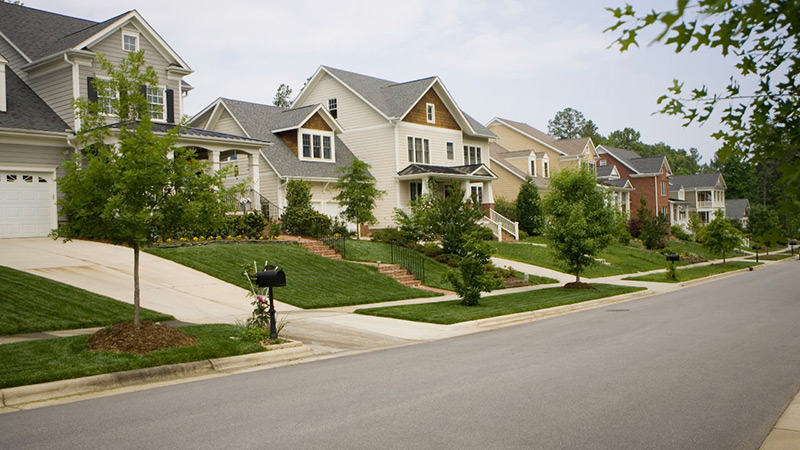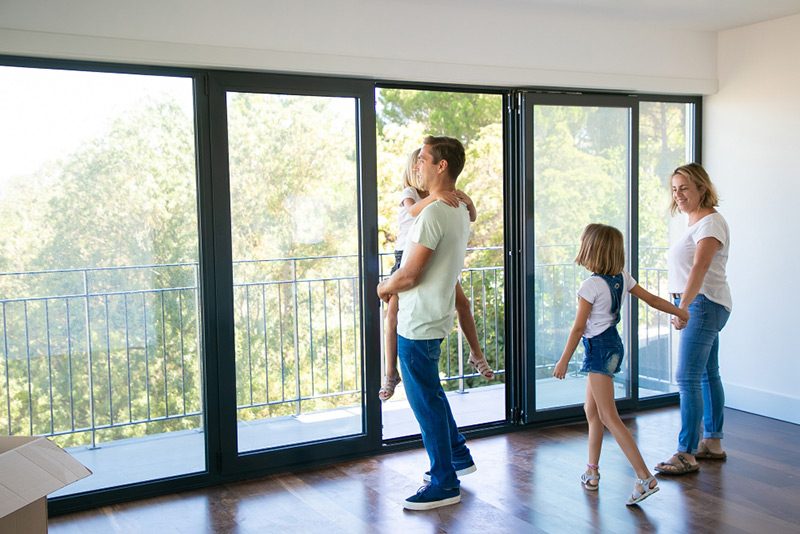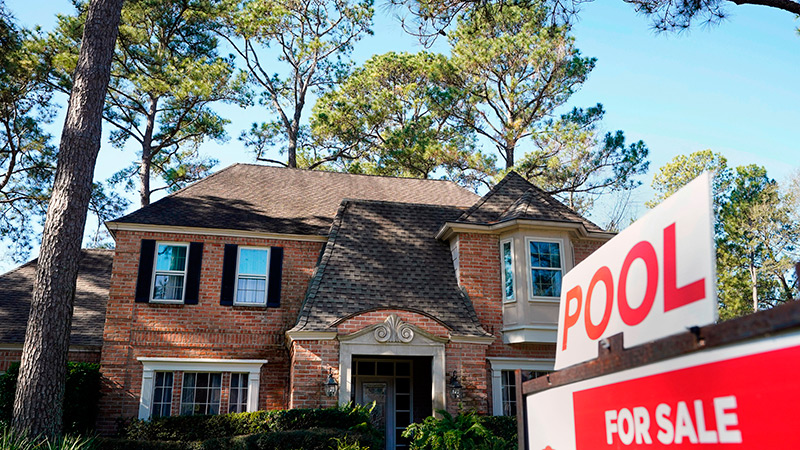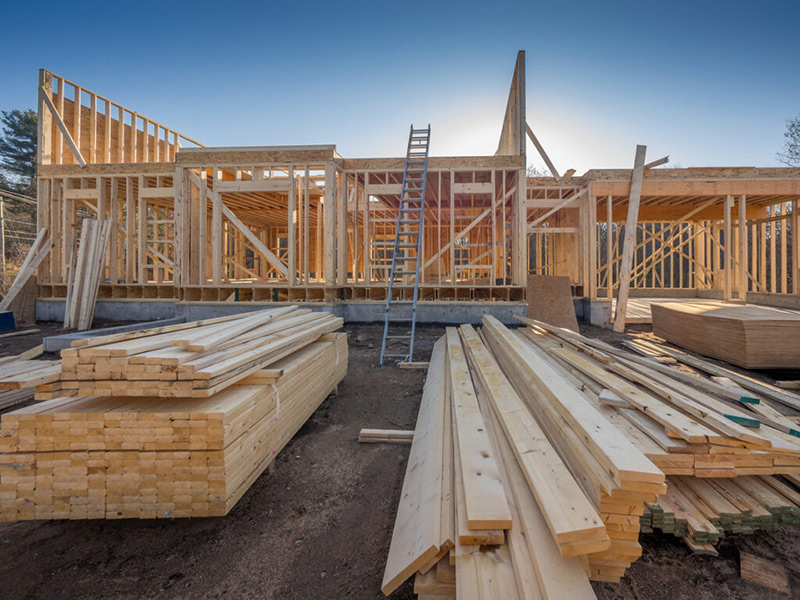
Building a brand-new home may sound like a dream come true. You get to choose the ideal layout for your family’s needs, and have a say in each and every design element. However, the process may also be daunting if you’ve never done it before. Here are the pros and cons of building a house, including how much it costs, how long it takes, how it’s financed, and much more that will help you decide if this option is right for you.
Pro: You get what you want
Building a home is a popular option these days. And, it makes sense: When you build your own home, you get exactly what you want: an in-law suite for when the grandparents visit, a decked-out office for working from home, midcentury modern style, and more. Anything is possible.
The best way to make sure you get what you want (and that it fits within your budget): Hire a great builder from the start. This crucial step sets the best possible foundation (in every sense of the word) for your new home. Builders help you select others on your team (such as an architect, interior designer, and landscaper) and serve as your point person throughout the process.
Pro: Build where you want
Have you always dreamed of living by the water or having a mountain view? Or maybe you want no neighbors in sight? Building a home lets you set up your residence just about anywhere you want. Talk to your builder before making a land purchase. The builder will need to do a feasibility study on the land to make sure it’s a suitable place for the home you want to build. Builders help make sure the land is zoned for residential development and identify any issues with building on the site, such as connecting to utilities or developing the land before building can start.
Pro: Less maintenance
An obvious advantage of building a home is that everything is brand-new. That means maintenance and repairs will be minimal or even nonexistent for a while, saving you plenty of headaches and thousands of dollars a year. Nonetheless, a new house isn’t entirely maintenance-free. You’ll probably still need to do yardwork to keep up your newly installed landscaping. And you may want to pay for some preventive upkeep, and that could save you money in the long run.
Con: Cost
Building a house is an expensive enterprise, and typically costs more than buying a preexisting home. As such, you’ll need to have some in-depth discussions with your builder on what you want, and whether it’s affordable for you. Several factors determine how much your newly constructed home will cost: location, size, complexity, and design elements.
Con: Construction financing
To finance building a home, you’ll need a construction loan, which is a little more involved than getting a traditional mortgage to buy a preexisting house. For starters, you’ll likely need a 20% down payment since construction loans are considered higher-risk. Along with the usual financial documents needed for your loan application, you need to provide project plans, costs, and land value. You also need a signed contract or purchase contract with the project’s plans, specs, and budget details, and a timeline for the construction.
When shopping around for a mortgage for a new home build, go with a lender experienced in working with construction loans.
Con: Time
Generally, it takes a bare minimum of three months to build a simple house, and it can take much longer. Planning as much as you can will keep the project on track. Still, delays do happen. Weather is the biggest one, with temperature shifts and rain or snow postponing work. Your own choices could also be to blame. If you’re taking too long to choose your favorite flooring or windows, it could make it all take a little longer.

